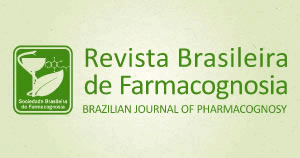A sulfated fucan from Laminaria abyssalis marine alga prevented the interaction of HTLV-1 particles, purified from the MT-2 cell line, with HeLa cells. The infection obtained using a concentrated virus suspension was detected only by amplification of the newly synthesized HTLV-1 proviral cDNA by the nested-polymerase chain reaction (PCR). The sulfated polysaccharide was not toxic to the cells at a concentration of 100 µg/mL and prevented infection by the viral particles when added to the cell monolayers. The proviral cDNA was only detected when the sulfated polysaccharide was added to the cells three hours post-infection, indicating that the inhibitory activity occurred in the initial stages of virus-cell interaction. Our results demonstrate, for the first time, the ability of a sulfated fucan from marine algae to inhibit virus transmission through free virus particles.
Human T-cell lymphotropic virus type 1; free particles; Laminaria abyssalis; marine algae; sulfated fucan; antiviral activity


